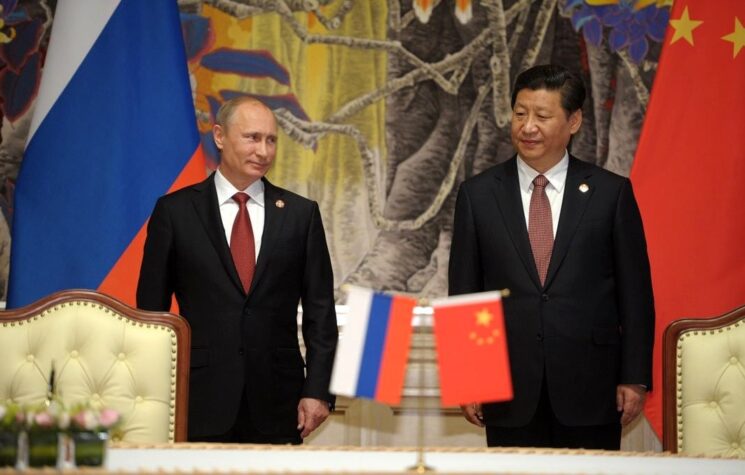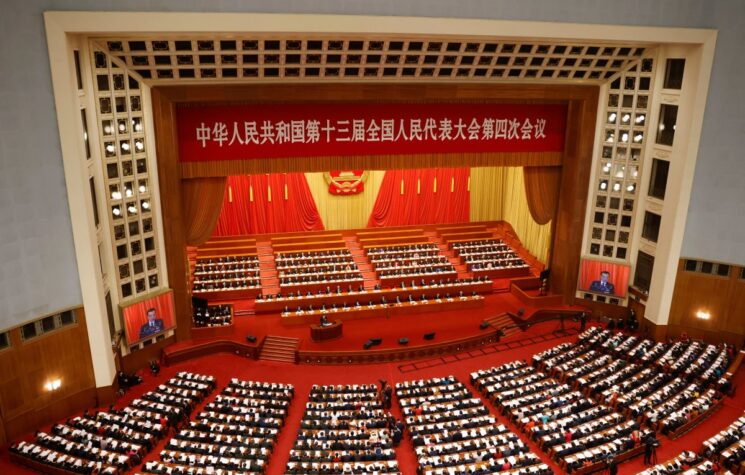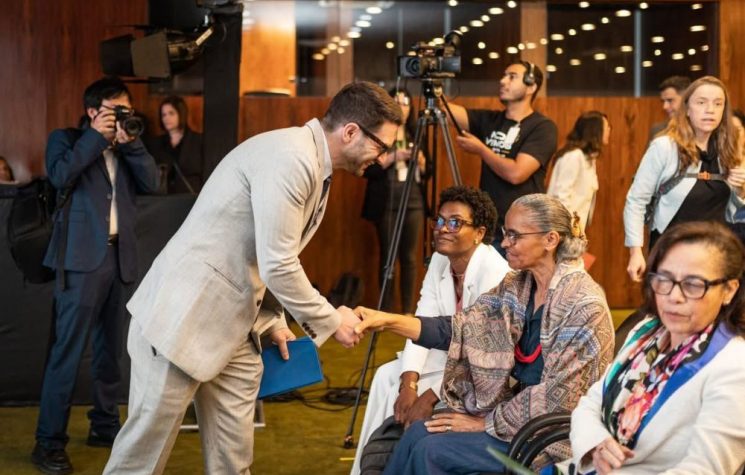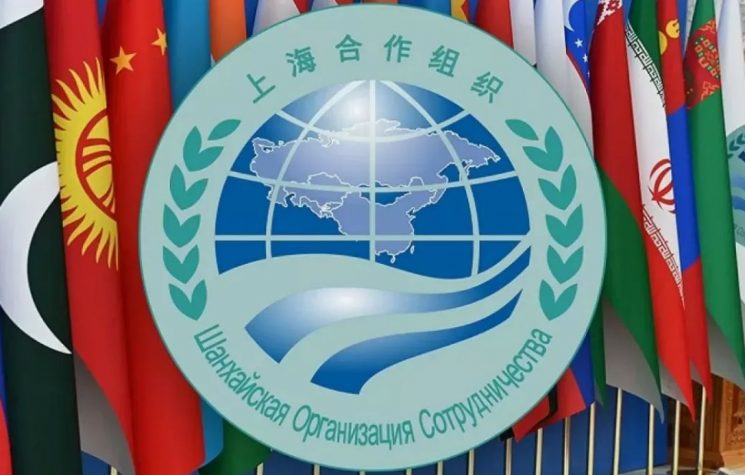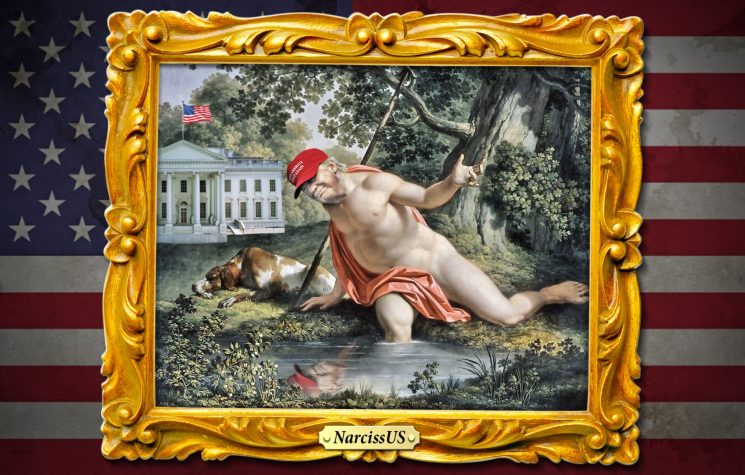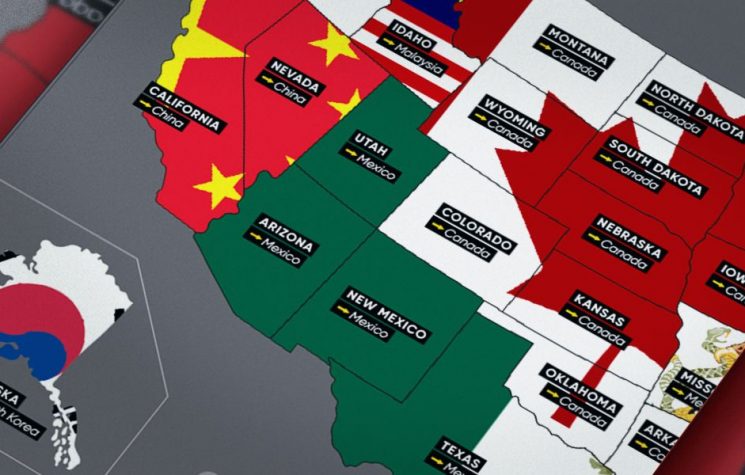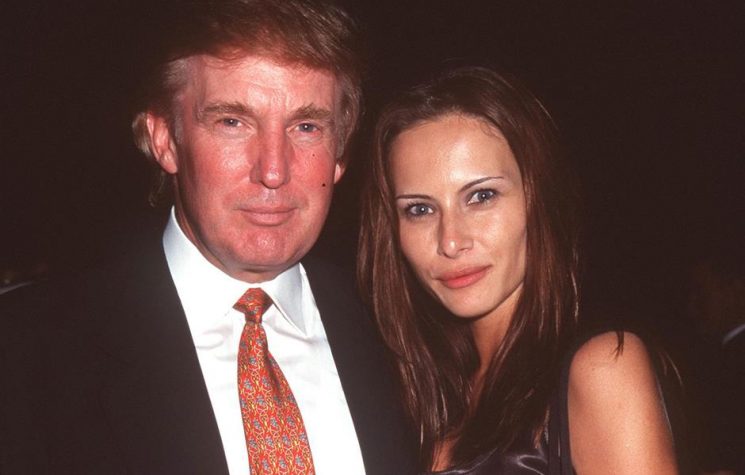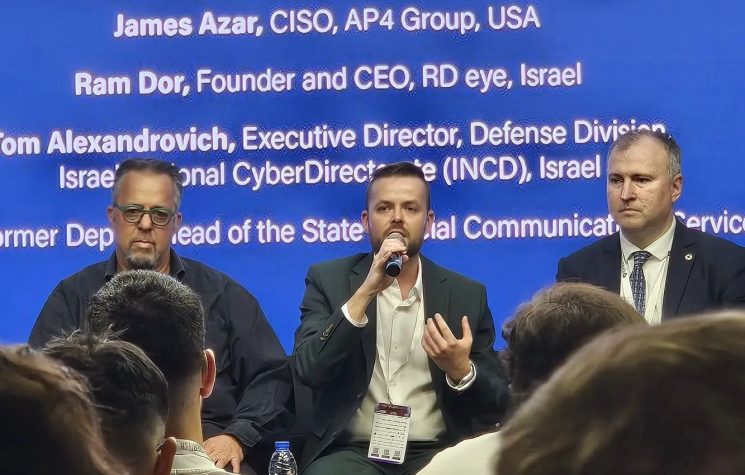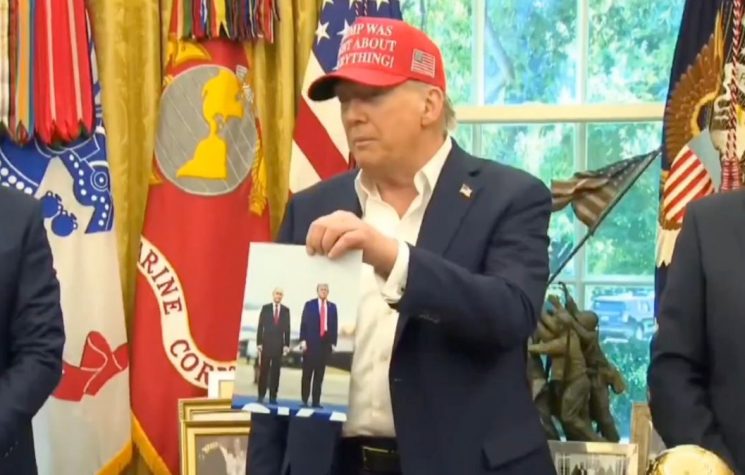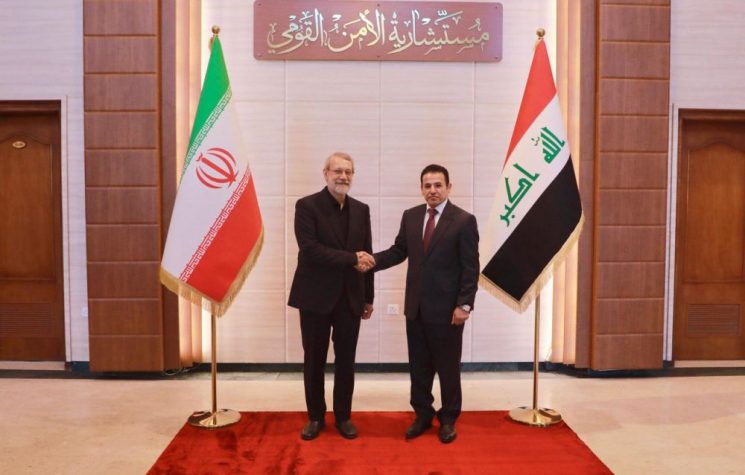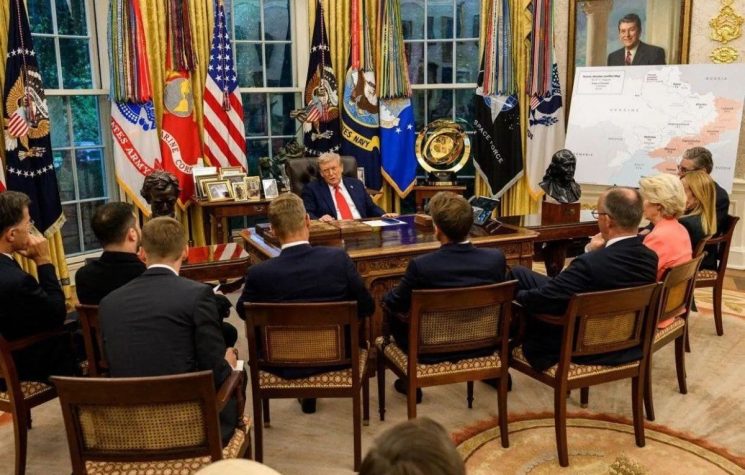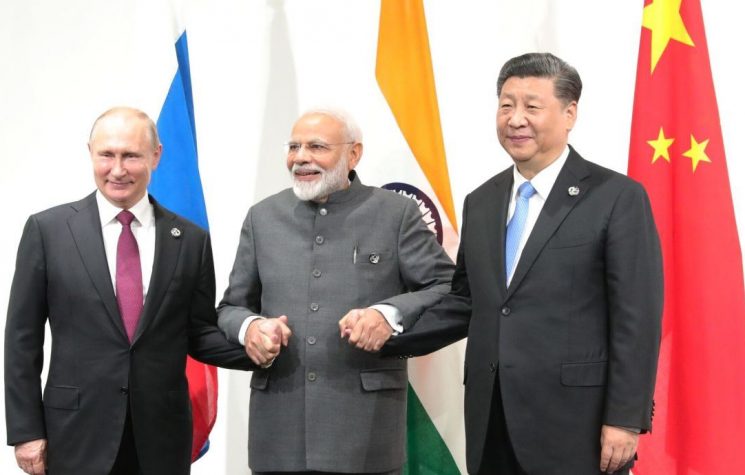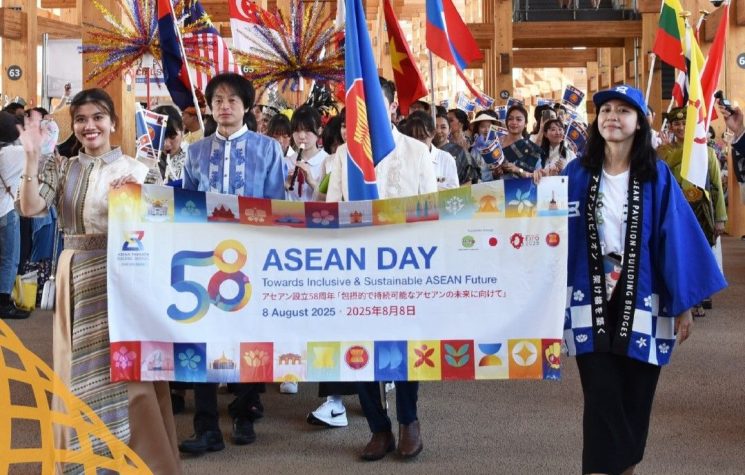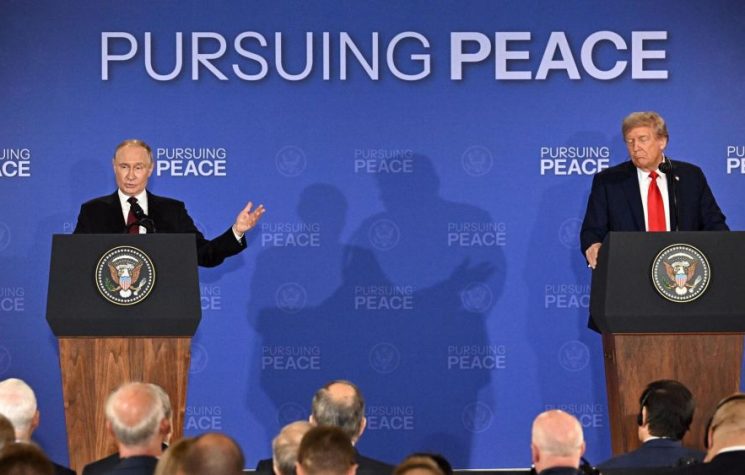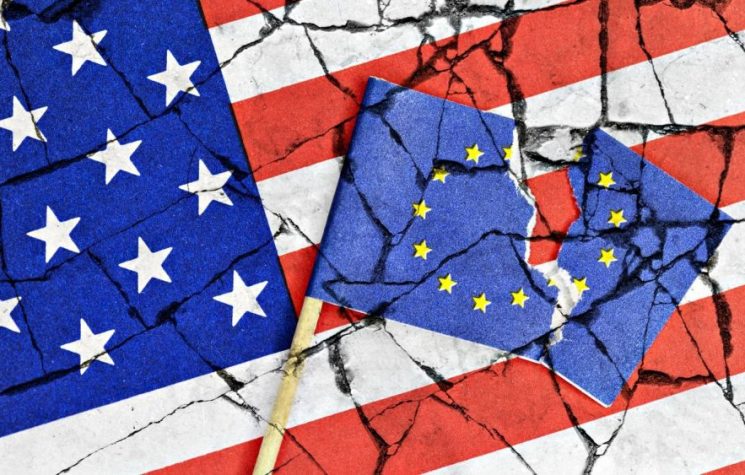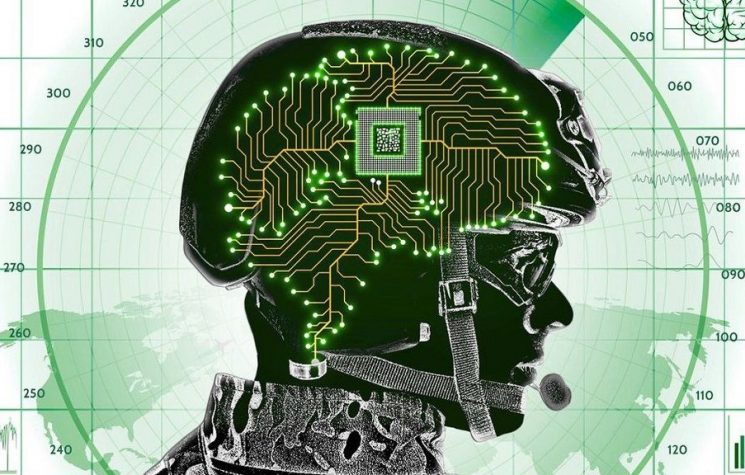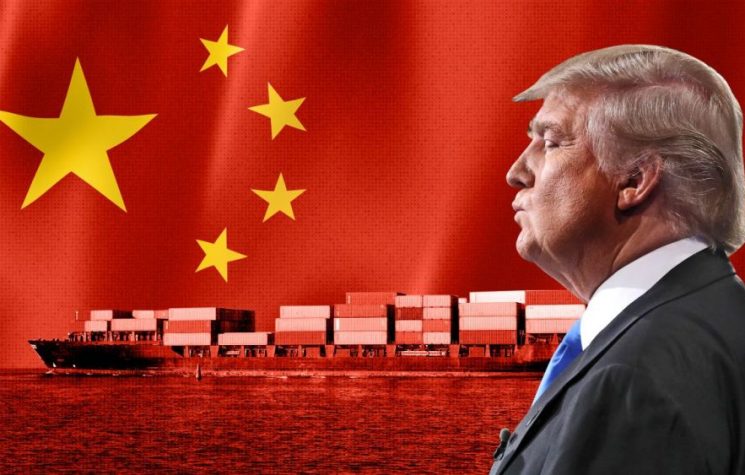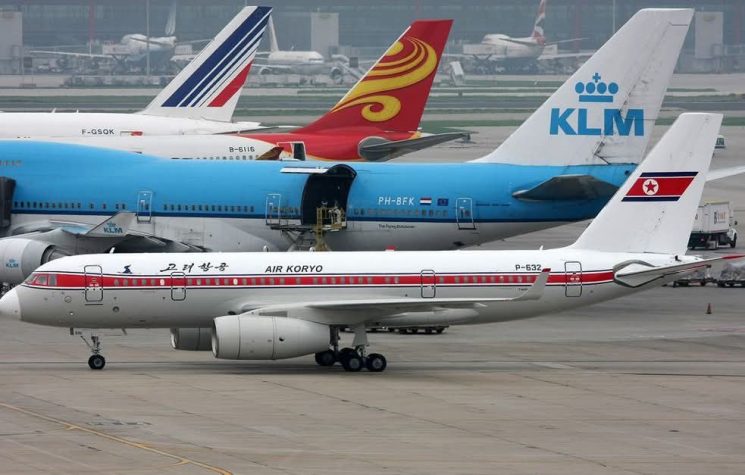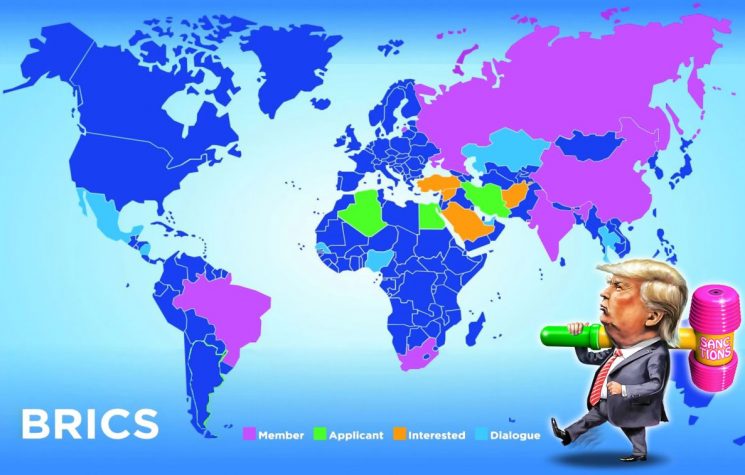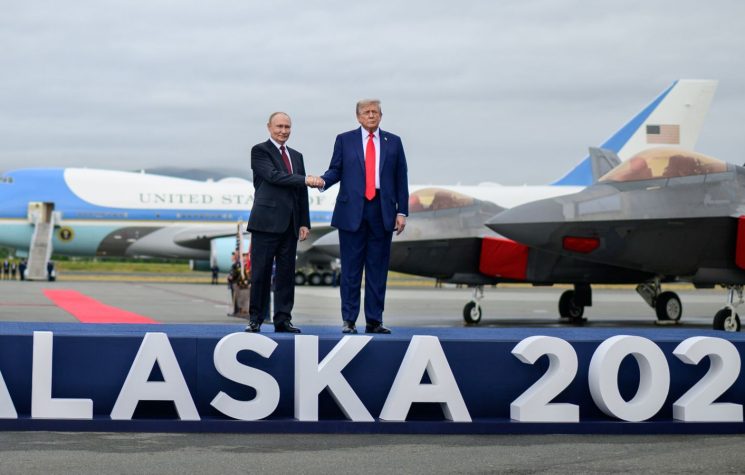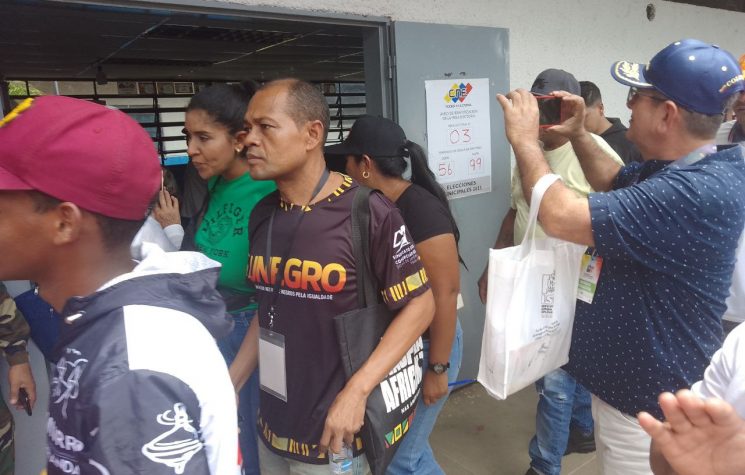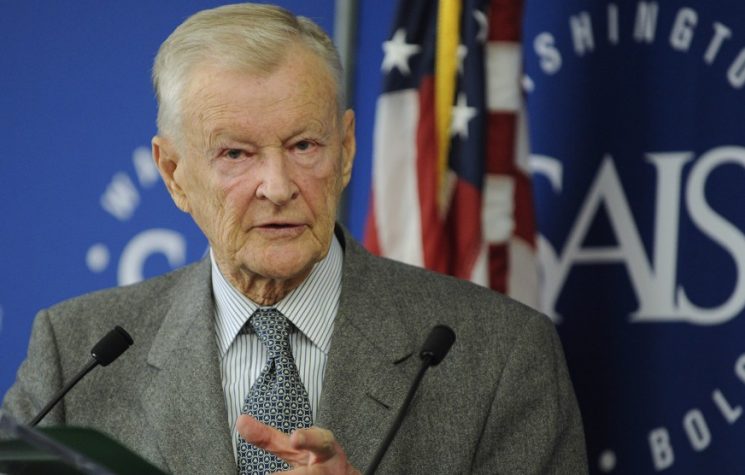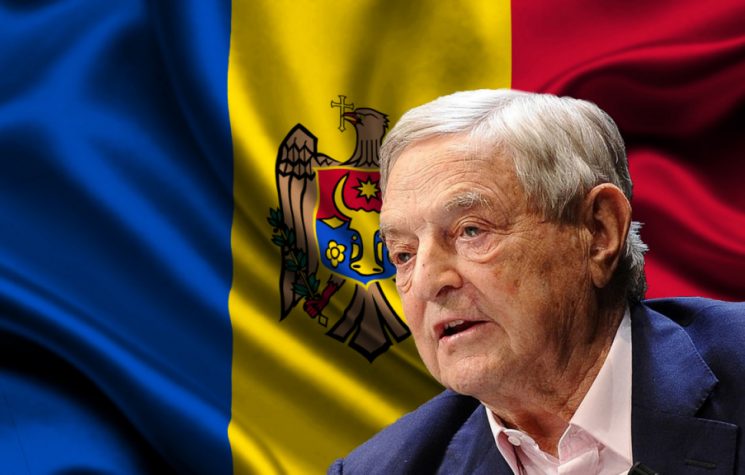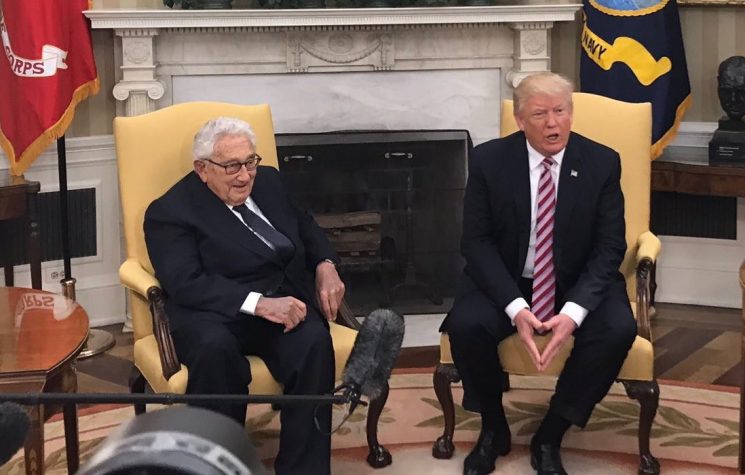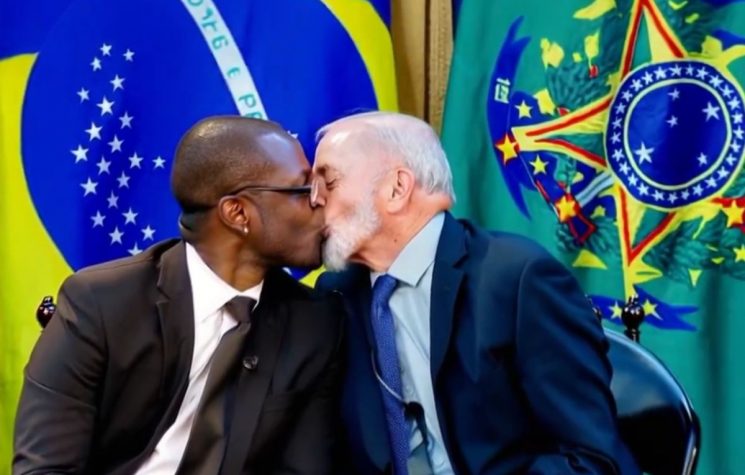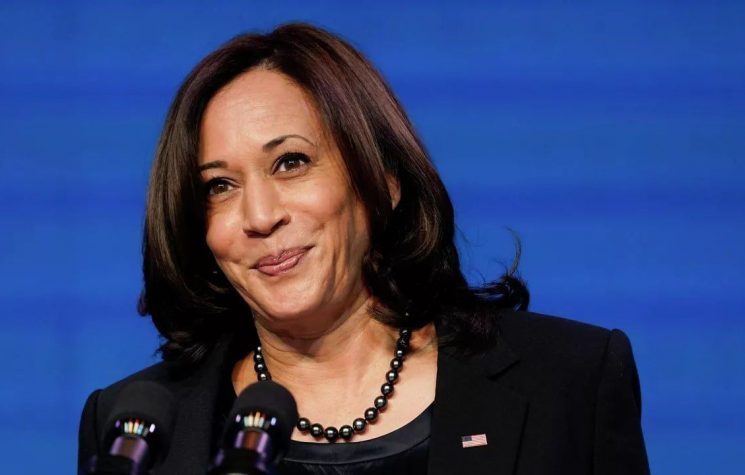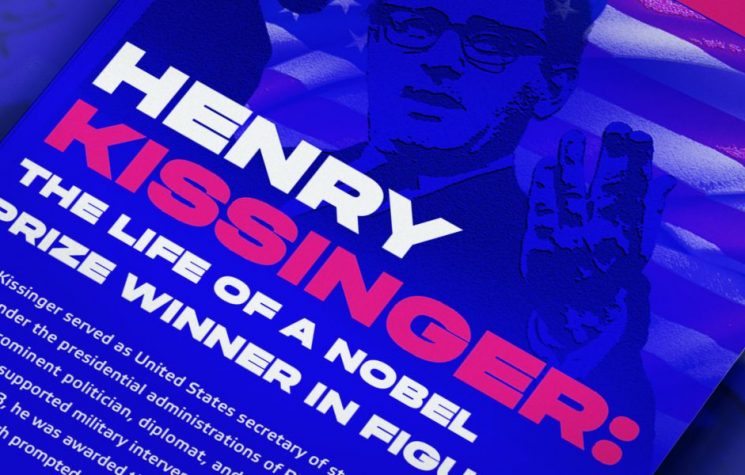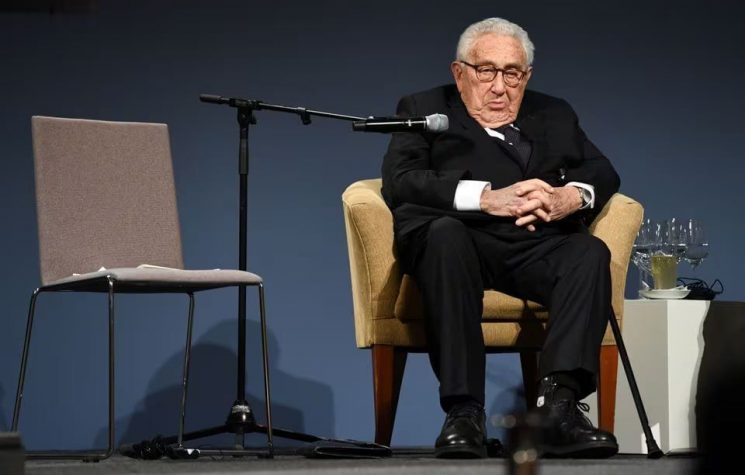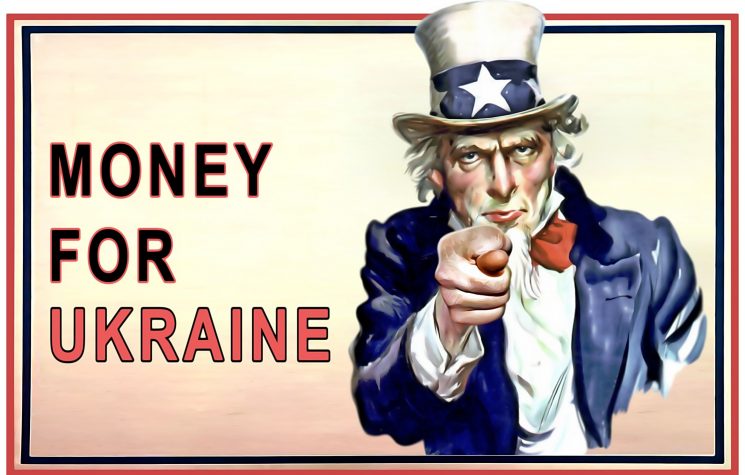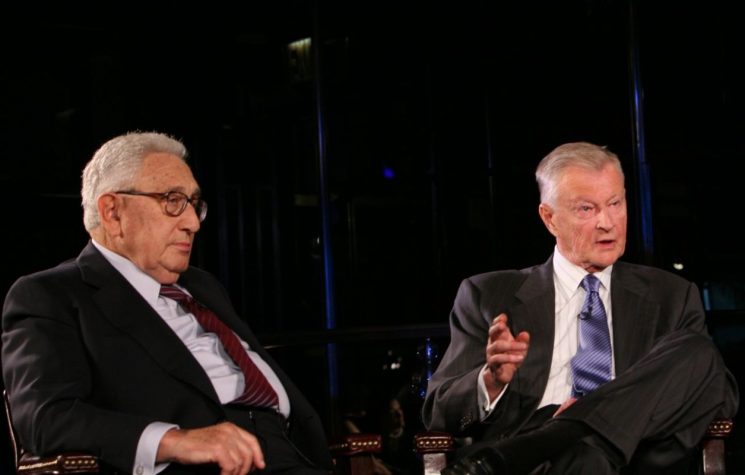Next time you hear that China is the cause of your problems, take a step back and ask yourself why Soros isn’t allowed into their country, even though he is running yours.
To this day, many people are still unclear as to the nefarious role that Hungarian mega speculator-turned philanthropist-turned color revolutionary George Soros has played in international affairs over the past 40 years. Sadly, many of those who have woken to the systematic carnage created by the elderly sociopath tend to make the mistake of either 1) assuming that the man has run an international conspiracy to rid the world of nation states all by himself or 2) believe him to be a stooge for the “evil Chinese Communist Party” which seeks to overthrow the western Christian-based order.
A recent short video which opened Mike Lindell’s recent Cyber security symposium was brought to my attention recently which encapsulated this belief and has been amplified across nearly all conservative press over the recent year. The trope has taken many forms and has been spread widely among a certain category of conservative-minded citizens of western nations who recognize that a disturbing global behavior-modification program is afoot which threatens to uproot thousands of years of traditional values.
The problem with those who acknowledge the existence of conspiracies to dismantle nation states and enslave much of the world population is not that they are wrong to be paranoid, or even that a color revolution just transpired within the USA itself. However, by deflecting attention away from the causal hand of British intelligence which has been at the heart of nearly every major historic manipulation suffered by the USA from 1776-present, China has been made to appear as some shadowy global supervillain using their Soros-affiliated assets managing the western deep state in the pursuit of global hegemony and the overthrow of “Christian values”.
The fact is that China is not only the first nation to successfully identify and purge Soros’ evil while the rest of the world was sleepwalking into a post-nation state order over 30 years ago, but remains one of the most invaluable pathways for a world of cooperation which western nations must join with if they are to liberate themselves from the oncoming dark age.
To restate the point: While other countries were busy letting Soros’ armadas of Open Society foundations infiltrate them at every level, China had the wits to see the evil agenda for what it was and when a color revolution was attempted at Tiananmen Square by those same agencies which were ushering in a new age rape of the Soviet Union and dismantling of western representative democracy, China lost no time to remove Soros’ right hand man in China in 1989 who had managed to reach the apex of political power as General Secretary of the Chinese Communist Party and heir apparent to the ageing Deng Xiaoping.
Soros’ man was named Zhao Ziyang and during the 1980s, western press had already become accustomed to calling him “China’s Gorbachev”.
Here he is being honored by Reagan in 1984.
A few words about Zhao
Zhao Ziyang was still a teenager when the Long March had occurred in 1934-35, but soon found himself rising within the CPC administration becoming a party leader of Guangdong Province in 1951 and managing a broad program of torturing peasants who were suspected of hoarding food during the great famine of 1958-61. Certain forces with influence seemed to appreciate that sort of thing at the time and his star rose even higher becoming Guangdong’s Party Secretary. But a couple of years into the Cultural Revolution Ziyang found his luck run dry, as he became the subject of attacks by Red Guards working for four years in a mechanics factory in Hunan. Upon his surprising rehabilitation in 1972, Ziyang again found his star rising as he was made First Secretary and Revolutionary Committee Chair in 1973. In 1975, he was appointed Party Secretary of Sichuan Province, where his penchant for de-regulation and market-driven economics were put to use in reforming agricultural policy during the early years of the opening up under Deng Xiaoping.
Zhao’s star rose incredibly fast during this period. By 1977, he was made Politburo Member, finding himself acting as Premier of the State Council from 1980 to 1987 followed by a stint as Secretary General of the CPC until his dishonorable ouster in 1989.
Today we have become accustomed to hear creepy transhumanists like Klaus Schwab and other technocrats giddily praise the Fourth Industrial Revolution, the merging of humans and machines, Artificial Intelligence’s “inevitable” replacement of human thought and the automation revolution which will supposedly render most of human labor redundant under a new “useless class”. However these ideas are not new and were alive and vibrant in the mind of Zhao Ziyang, who was profoundly influenced by transhumanists like Alvin Toffler (author of Future Shock and the Third Wave) whose concepts of a post-industrial new age in many ways serves as a bible for the Great Reset agenda now underway.
Speaking at an October 9, 1983 conference in Beijing, Zhao said:
“Whether we call it the Fourth Industrial Revolution or call it the Third Wave, [these writers] all believe that Western countries in the 1950s and 1960s reached a high degree of industrialization and are now moving to an information society.… At the end of this century and the beginning of the next century, or within a few decades, there will be a new kind of situation in which breakthroughs in new technology that are happening now or will happen soon will be used for production and for society. This will bring a new leap in social productivity and thus a corresponding set of new changes in social life. This trend is worthy of our attention and must be carefully studied, based on our actual situation, in order to determine the next ten to twenty years of our long-range planning.… For us and for the future of the Four Modernizations, this is both an opportunity and a challenge.”
The Battle for the Four Modernizations
The policy known as the Four Modernizations referred to by Zhao above was first formulated by China’s great nation builder Zhou Enlai in 1963 as a multigenerational outline designed to guide China’s emergence into the new millennium as modern technologically advanced nation. Zhou Enlai’s plan hinged on an over-all economic and industrial revolution driven by breakthroughs in 1) Industrial productivity, 2) Agricultural productivity, 3) Defense and 4) Scientific/technological progress.
By the time Zhou died in 1976, followed soon thereafter by Mao Zedong, it became increasingly clear that the Gang of Four that had attempted to reset thousands of years of history within the decade of 1966-76 would not remain in power for long and Zhou’s program increasingly became the driving force of China’s long term development strategy. With Zhou’s close ally Deng Xiaoping taking the helm of the Communist Party in 1978 (after jailing the Gang of Four), conferences among the Central Committee of the CPC were convened to make the Four Modernizations a reality with Deng stating:
“We should select several thousand of our most qualified personnel within the scientific and technological establishment and create conditions that will allow them to devote their undivided attention to research. Those who have financial difficulties should be given allowances and subsidies… we must create within the party an atmosphere of respect for knowledge and respect for trained personnel. The erroneous attitude of not respecting intellectuals must be opposed. All work. Be it mental or manual, is labor.”

Deng Xiaoping and Zhou Enlai in 1963
Deng’s choice to uplift the Marxist concept of labor from merely material forces to embrace creative mental labor was brilliant and pointed China in a new and vibrant direction that would allow the Asian giant to emerge as an economic powerhouse within a few generations. However, whenever matters of scientific creativity and non-linear projections into the future are discussed, there is often much space for debate and interpretation as to what philosophies and pathways will best advance those non-linear objectives. It is here that ideologues of the new Malthusian revival then sweeping the western world came into play, and a life-or-death battle between open vs closed system theories of governance took place.
Kissinger’s Slave Labor Vision for China
Henry Kissinger’s program to open up China that began in earnest in 1971 at the height of the Cultural Revolution was premised on an ideological commitment to a post-nation state world order.

Kissinger and Mao in 1972 with Zhou Enlai in the middle
In Kissinger’s mind (and fellow Trilateral Commission members who took control of U.S. policy as modern Helmsmen over the dead bodies of JFK and his brother), the Chinese which largely found themselves in the First Industrial Revolution (of agriculturally-driven peoples) in 1971 should remain in a static condition as poor and uneducated workers in order to serve as zones of cheap labor to produce goods purely for export to western consumer markets. Those western consumer markets would not need those industries they once enjoyed which were now being exported under Kissinger’s program since the west had achieved its supposed “limits to growth” under the industrial paradigm (which Futurist Alvin Toffler labelled the “Second Wave”). Under the new age of “post-industrialism” (Toffler’s Third Wave), humanity was expected to have “evolved” into an information-driven society.
Describing his thesis in 1978, Toffler spoke of the emergence of the Third Wave and obsolescence of industrial civilization saying:
“This era is now screeching to a halt. Industrial civilization is now in a state of terminal crisis, and a new, radically different civilization is emerging to take its place on the world stage … We are swiftly entering a new, more sophisticated state of evolutionary development based on far more advanced yet more appropriate technologies than any known so far. This leap to a new phase of history is bringing with it new energy patterns, new geopolitical arrangements, new social institutions, new communications and information networks, new belief systems, symbols, and cultural assumptions… Thus it must generate wholly new political structures and processes. I fail to see how it is possible for us to have a technological revolution, a social revolution, an information revolution, moral, sexual, and epistemological revolutions, and not a political revolution as well …. In this sense the breakdown of government as we have known it-which is to say representative government… is chiefly a consequence of obsolescence. Simply put, the political technology of the industrial age is no longer appropriate technology for the new civilization taking form around us. Our politics are obsolete.”
Kissinger’s role as a neo-Malthusian was known to all, as his infamous National Security Study Memorandum 200 (NSSM-200) of 1974 had already transformed American foreign policy from pro-development to pro-population reduction with the assumption that the computer models used in the Club of Rome’s Limits to Growth (1972) were somehow based in reality despite their total rejection of creative reason and technological progress.

Among the top remedies to population growth, NSSM-200 listed birth control and the withholding of food. Kissinger asked: “is the U.S. prepared to accept food rationing to help people who can’t/won’t control their population growth?”
Kissinger’s report didn’t mince words: “The U.S. economy will require large and increasing amounts of minerals from abroad, especially from less developed countries. That fact gives the U.S. enhanced interest in the political, economic, and social stability of the supplying countries. Wherever a lessening of population pressures through reduced birth rates can increase the prospects for such stability, population policy becomes relevant to resource supplies and to the economic interests of the United States…. Although population pressure is obviously not the only factor involved, these types of frustrations are much less likely under conditions of slow or zero population growth.”
Kissinger, Toffler and other devotees of the Club of Rome had no shortage of followers among the new breed of statecraft emerging in Deng Xiaoping’s China. These neo-Malthusians who preferred to look at humanity from the filter of mathematics and computer modelling wasted no time in infiltrating as many positions of influence as possible in the State Council and attempted to coopt the Four Modernizations towards anti-human ends.
Toffler’s Third Wave Crashes into China’s Shores
All of these figures would be centered around the powerful figure of Zhao Ziyang who was their constant protector and facilitator throughout the 1980s.
One influential Malthusian who is given credit as architect of China’s One Child Policy and close collaborator of Zhao is Song Jian, a missile scientist who was trained in Norbert Wiener’s Cybernetics theory while studying in Russia in the 1950s. After attending the 7th World Congress of the International Federation of Automatic Control in Finland in 1979, Song was introduced to the Club of Rome’s Limits to Growth. According to researcher Robert Zubrin, Song immediately translated the book into Chinese without attribution to the original authors, and immediately used its linear models to compute the trend in population, pollution and resource loss over the course of a century concluding that China’s optimal population (aka: “Carrying Capacity”) to be on the order of 650-700 million (nearly 300 million fewer than the total population of his own time). These Club of Rome ideas spread like fire and were soon adopted as Chinese policy resulting in one of the worst instances of decades-long infanticide in history with a population reproduction rate that has not even begun to recover 40 years later (despite the wise removal of one child limits in 2016 and two child limits this year).
As Cambridge researcher Julian Gewertz noted in his 2019 study ‘Futurists of Beijing’, working as head of China’s State Science and Technology Commission, Song interfaced closely with Zhao to keep China’s science policy thinking tied to Club of Rome systems thinking.
Another figure who was instrumental in bringing Alvin Toffler’s ideas to China was a senior researcher at the Chinese Academy of Social Sciences named Dong Leshan who spent months touring the USA where he met with the futurist. Describing his tour in 1981, Dong wrote: “Everyone I met and with whom I discussed American intellectual trends talked about [Toffler’s] book The Third Wave”
Dong immediately organized the ‘Chinese Society of Future Studies’ to formally invite Toffler for his first trip to China months later whereby Toffler wrote to Dong requesting “meetings and interviews with your leading political figures and with persons responsible for long-term planning”. At the top of the list was Zhao Ziyang.
In March 1983, a Chinese publishing house called Sanlien translated the first Chinese edition of Toffler’s Third Wave and a scandal immediately arose, since its ideas were admittedly antithetical to Marxism on every level. The mystical idea of social evolution outlined by Toffler, was merely a reformed eugenics masquerading under the guise of Transhumanism which posited that not ideas or intentions but rather blind a-moral forces were propelling human civilization towards higher states of complexity. These blind fatalistic “forces” were devoid of human intention and were moving our species inevitably through waves of development which included socio-political dynamics assigned to each wave (i.e.: First Wave = agricultural / feudal / pre-national, Second Wave = industrial / democratic / national, Third Wave = information / technocratic-feudal / post-nation state.)
The major insight offered by Toffler and his Chinese followers during this period was that China (and other underdeveloped nations) could skip the second wave of dirty industrialization and leap straight from the first to the third wave.
In 1983, Zhao stated: “Toffler’s Third Wave has a similar view. He believes that today’s Third World countries may not have fully experienced the ‘Second Wave’ of development, but that they can take an entirely new route to achieve a ‘Third Wave’ civilization.”
All China required were “special economic zones” on the coasts for the purpose of importing raw and semi-finished material from abroad, clusters of low-wage labor intensive, low tech factories to transform those materials into finished goods in order to then be shipped back out to the consumer markets in the first world abroad. Money acquired by these means could be invested into third wave science programs with a focus on genetic engineering, artificial intelligence and information systems which were Zhao’s three priorities for China’s future. All considerations of large-scale development driven by great projects and concrete goals that could shape science priorities were banned in the minds of “bottom up” free market theories promoted by Zhao, Kissinger and Toffler.
Historian Michael Billington has noted that the Trilateral Commission directly organized a conference in Beijing in 1981 in order to keep China locked into this feudal model writing:
“In May 1981, David Rockefeller chaired an international conference of the Trilateral Commission held in Beijing. At that meeting, Chase Manhattan Bank’s chief, William C. Butcher, told the Xinhua news agency that China’s reform would only succeed if they rejected large industry or great development projects in favor of labor-intensive production. Heavy industry and infrastructure, he said, “take two great things, a great deal of energy and a great deal of money, neither of which are abundant in China.”
Another of Toffler’s heresies which led to a brief banning of his book in 1984 was the idea that politics should be severed from economics. In Toffler’s mystical worldview, the “force” of technological progress was of an evolutionary variety that could only be held back when human intentions meddled with it via political agendas and moral considerations. Zhao spent years arguing with the Politburo that economics be “liberated” from politics earning him the ire of statesmen recognizing the evil that was infusing itself into China.
Friedman Steps into China
Milton Friedman was among the first grouping of western economists invited to tour and lecture to the Chinese elite in 1979 meeting repeatedly with Zhao Ziyang on all voyages. After his 1988 China tour, Friedman described his two hour meeting with Zhao saying: “We have a good impression of this person and his wisdom. He has profound knowledge of economic problems and is determined to enlarge the scope of the market. He is willing to experiment and learn and listen to the suggestions and opinions of other people.”
Never one to reject fascism as the necessary enforcer of wage cutting, privatizations and “pro-market” reforms needed to subdue a population into accepting liberty over socialism (as seen in his support for Pinochet’s Chile), Friedman made a point that the Chinese Communist Party must be maintained as an absolute central power saying: “At the same time, he [Zhao] has, if possible to safeguard the supreme authority of the communist party. Wonderful skill is needed for him to do so.”
I make this point here and now because it is incredibly important for westerners to understand that the support that sociopaths like Friedman, Soros, or Kissinger have given to the Communist Party from time to time has always been contingent upon their commitment to bring the party under the control of an anti-human, anti-nation state priesthoods of Zhao-like puppet technocrats. To the degree that centralized power like that held by the CPC is run by true philosopher kings committed to the Confucian ‘Mandate of Heaven’ (aka: ‘Tian Ming’), then China’s CPC becomes a nightmare for utopian globalists.

George Soros and Zhao Ziyang
In 1986, Zhao sponsored the first of two new Soros-run think tanks with the “Fund for the Reform and Opening Up of China” using a million dollar grant by the speculator, followed by the Institute for Economic and Structural Reform (IESR) co-run by Zhao’s close advisor Chen Yizi. The IESR interfaced closely with the National Endowment for the Democracy (aka: CIA) that set up two offices in China in 1988.
In his post-humously published autobiography, Zhao had written that during this time he had wish that “China should adopt a free press, freedom to organize, and independent judiciary and a multiparty parliamentary democracy”… Additionally, following the Glasnost/Perestroika model which was gearing up to rip apart the Russian economy under a post-history era, Zhao stated that he was then calling for “the privatization of state owned enterprises, the separation of the Party and the State and general market economic reforms”.
In a 1989 interview, Soros described the greatness of Gorbachev but pointed to his one criticism of economic incompetence saying: “in China, by contrast, the Communist Party General Secretary Zhao Ziyang is an accomplished economist, with a think tank of brilliant young minds at his disposal.”
Soros, Friedman and Toffler had every reason to be on cloud nine during the 1988-89 period. The painstaking work of many decades was finally coming to fruition as the western nations had been largely cleansed of pro-industrial statesmen who were resistant to the idea of a post-nation state New World Order. A few troublesome figures like Deutschebank’s anti-Malthusian Chairman Alfred Herrhausen and American economist Lyndon LaRouche were still causing problems, but solutions were soon found to put them out of Kissinger’s misery. (1)
Not only were the western nations largely captured by a supranational technocracy, but finally Communist nations on the other side of the iron curtain were also melting in the furnaces of this same technocratic elite forging a ‘new order’. The Berlin Wall was trembling and the Soviet Union was on the cusp of collapse.
Despite all of this “success”, something inside of Asia was pushing back against the priests of the Fourth Industrial Revolution and that “something” had to be de-toothed.
Tiananmen Square’s Color Revolution Fail
It was here that the CIA’s James Lilley (Ambassador to China), the National Endowment for Democracy, and George Soros deployed all of their resources to activate a full-blown color revolution on June 4, 1989 with student demonstrations in Tiananmen Square bursting into violence.
With the active participation of modern color revolutionary Gene Sharp who was on the ground in Beijing for nine days during the protests, and an abundance of CIA-driven propaganda pumped through Radio Free America in Asia, training, funding and even the arming of violent reactionaries among the student groups with Molotov cocktails and guns, a chaos operation was put into motion that was anything but a peaceful protest. Many of the assets coordinated and deployed by CIA front groups in China included vicious student anarchists whose efforts led to the murder of dozens of PLA soldiers whose charred carcasses can make anyone’s stomach turn 30 years later. When the coup failed, and the government-led massacre couldn’t be induced by provocateurs, all of the energy of global perception management were deployed to give the illusion that a massacre had transpired which has created a “holocaust”-like mythos to this very day.
When the bloodbath failed to be sparked, with only 200-300 deaths (many of which being PLA soldiers), the plan was aborted and the most radical provocateurs beholden to the Soros operation were carried off to safer grounds in the USA and Canada under an MI6/CIA operation titled “Operation Yellowbird”. With the vast assistance of Hong Kong triads, these anarchists were snuck out of China where many received luxurious rewards and scholarships at Ivy league universities in the USA forming what the Washington Post’s Gavin Hewitt described as “the nucleus of a democracy movement in exile”.
Much has been written on the truth of Tiananmen Square’s events in 1989, and for any honest person evaluating the evidence presented on the topic (such as here, or here, or here), the case should be considered closed.
Soros is Purged and Zhou Enlai’s Vision Restored
In many ways, Tiananmen Square served as a sort of blessing in disguise for China, as the true evil that Zhao, Soros, and the Malthusian puss that had infected China’s power structures was made visible for all to see. Zhao’s “heroic” role as a “man-of-the-people opposed to the government’s crackdown on the peaceful students” did not go as planned. Instead of being celebrated as the pro-freedom fighter which his controllers wished him to be, the protest ended with very little bloodshed and his role as usurper of China was exposed.
The Chinese Communist Party lost no time in shutting down all of Soros’ operations, banishing the speculator for life, and removing Zhao from all positions of authority where he was placed under house arrest for the rest until his death in 2005. Zhao’s close ally Chen Yizi only avoided arrest by escaping to the USA to play a longer-term role in Soros’ apparatus along with hundreds of other shills and traitors.

Zhao Ziyang and his Soros-tied aide Chen Yizi speaking to crowds at Tiananmen Square
Today, China has become a driving force for progress in defense of the sovereign nation state as a foundational stone of the Greater Eurasian Partnership and broader multipolar order premised on the UN Charter. Due to China’s ability to defend her economic sovereignty, maintain top down planning capabilities of a strong central government, national banking and bank separation of commercial vs investment activities, China has been able to create a system of growth that is antithetical to everything which Toffler, Soros, Schwab, Kissinger and the Club of Rome ideologues believe to be humanity’s fixed destiny. In total defiance of the Third Wave ideologues that promoted the idea that China could become a “post-industrial” system run by mind-less Artificial Intelligence, and genetically engineered humans, with only horizontal democracy from below and a scientific priesthood managing the techno-feudal system from above, the BRI/New Silk Road has given a moral and intellectual principle to genuine long term trajectories that shape the best of China’s young minds. The motive principle of creative reason, constant scientific progress, and moral righteousness that serves as the bedrock of Tian Ming have made the Belt and Road the perfect expression of Zhou Enlai’s Four Modernizations vision.
Let there be no mistake, there are many surface similarities between the closed system thinking of cybernetics that animated the theories of the Fourth Industrial Revolution and Third Wave vs the open system thinking that animates China’s New Silk Road.
Both approaches to “systems management” involve strong centralized power, and both are guided by “scientific planning” of the political economy.
It is only when we look at such factors as intention, morality, and respect for creative reason that striking differences come to light.
While Confucian traditions that seek to lift people out poverty, promote win-win cooperation, increase human rights, and enhance modes of creative expression governs post-Soros China, these factors are totally lacking in the closed Malthusian system that strives to impose entropy, mathematical equilibrium and absolute control onto humanity.
Where one uses computer modelling as a tool to serve the aims of the nation to achieve non-linear breakthroughs in science and technology in order which in turn overcome the ever-variable “limits to growth” of our relative carrying capacities, the Malthusian system seeks to cage all national planning to computer models that dictate fixed limits to growth.
Where one sees stability as fundamental and change as a secondary feature of the system, the other sees creative change as primary and states of stability as the secondary feature.
Said in his own words, Xi Jinping described this process in the following terms: “Coordinated development is the unity of balanced development and imbalanced development. The process from balance to imbalance and then to rebalance is the basic law of development. Balance is relative while imbalance is absolute. Emphasizing coordinated development is not pursuing equalitarianism, but giving more importance to equal opportunities and balanced resource allocation.”
In an earlier speech, Xi implicitly denounced the Third Wave ideology of Toffler and developed this concept even further:
“We must consider innovation as the primary driving force of growth and the core in this whole undertaking, and human resources as the primary source to support development. We should promote innovation in theory, systems, science and technology, and culture, and make innovation the dominant theme in the work of the Party, and government, and everyday activity in society… In the 16th century, human society entered an unprecedented period of active innovation. Achievements in scientific innovation over the past five centuries have exceeded the sum total of several previous millennia… Each and every scientific and industrial revolution has profoundly changed the outlook and pattern of world development… Since the second Industrial Revolution, the U.S. has maintained global hegemony because it has always been the leader and the largest beneficiary of scientific and industrial progress.”
So the next time you find yourself entertaining the notion that China is the cause of your problems, take a step back and ask yourself why Soros isn’t allowed into their country, even though he is running yours.








